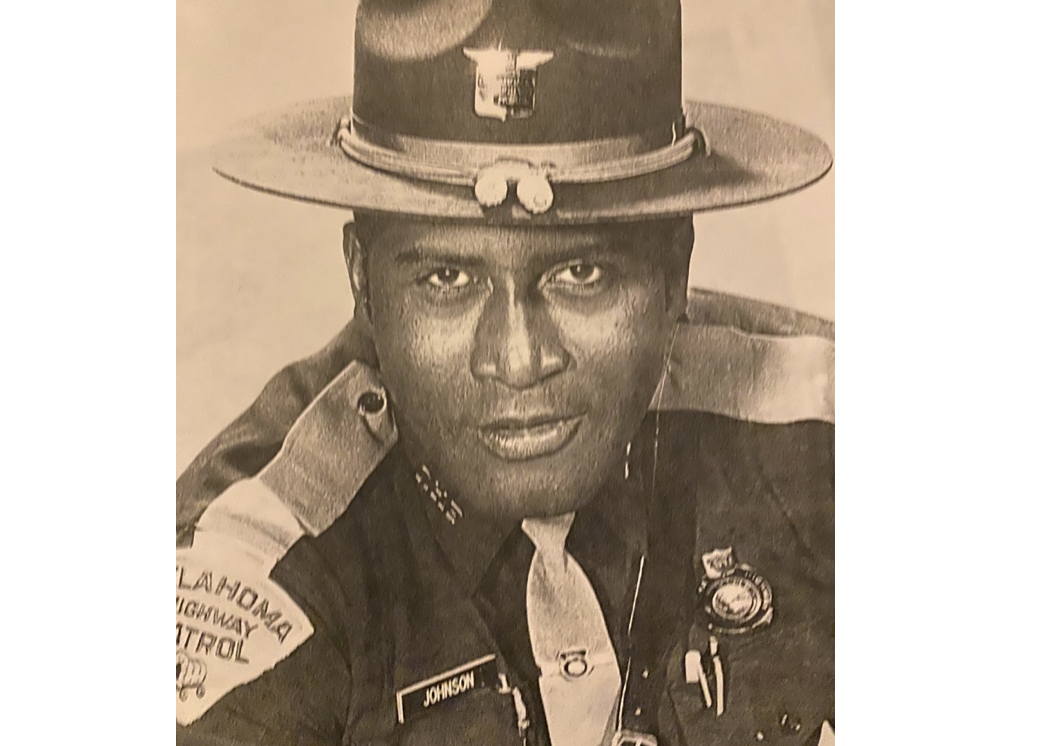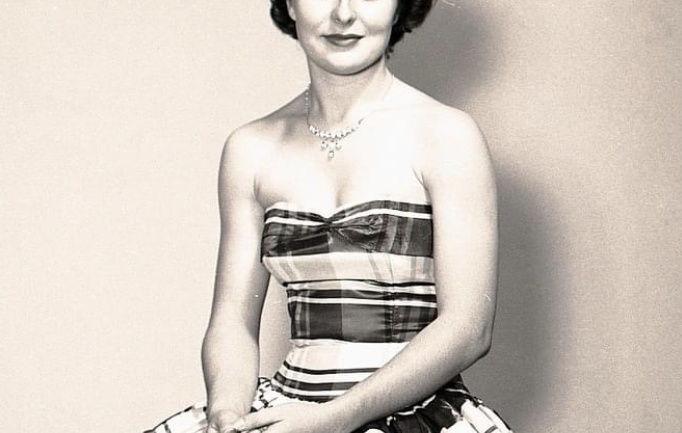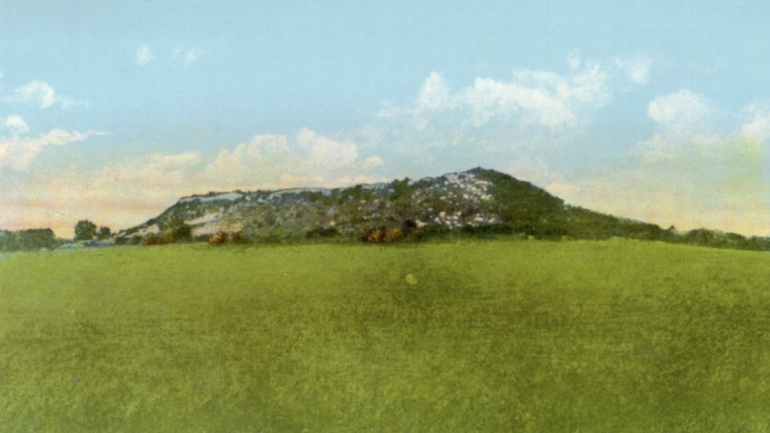Telling the History of Claremore…one story at a time
As published in the Claremore Daily Progress on November 19, 2011 by Larry Larkin, Progress Correspondent
A true pioneer was laid to rest this past week. Claremore’s own Ronnie L. Johnson, the first Oklahoma Highway Patrol black trooper died November 13. He was 79. “Lieutenant Johnson was a trailblazer who led the way for countless other African American troopers to serve with distinction,” Governor Mary Fallin said in a news release, “The law enforcement community and the entire state of Oklahoma owe him a debt of gratitude for his service, his commitment to law enforcement, and the courage he displayed by being the first of a long and still growing list of African-American state troopers.”
During his entire career Johnson met all challenges with professional distinction and courage. At the start it was extremely tough being a “black cop” in an up until then white profession. There was criticism, doubt, even anger, across the state at the time of his appointment. For his friends back home in Claremore, both black and white, they knew Johnson could accomplish whatever he set out to do.
As a teenage student and athlete at Lincoln High School, Johnson proved this time after time. Currence Johnson and Maryetta Vann were the parents of Ron and his twin brother Donald Gene. The lived in the Bushyhead Creek area in Wagoner County. In 1944 the Johnson family moved to Claremore so the boys could attend the all-black high school here.
Following graduation Ronald Lee Johnson joined the U.S. Air Force for four years service. Shortly afterwards he married Vanilla Lee White, also of Claremore. Needing a steady job to support his wife and family, he was hired by the Oklahoma Turnpike Authority. He was the first of his race to become a toll gate attendant, a position he held for two and a half years.
Johnson was 34 years old when he graduated from the Oklahoma Highway Patrol Academy in 1968. As an Air Force veteran, Johnson first applied for the academy the year before. Following a lengthy period of time with no word from the state officials, Johnson questioned why and was told “…your application was apparently lost.”
He was also told by the commander at that time that “…the department wasn’t ready for a black trooper.” Disappointed but with no thought of giving up, Johnson applied the following year. Having the support of Representative Bill Biscoe, a white man, this time he was accepted along with 25 other recruits. He was one of seven men to graduate the academy in 1968.
“When Lt. Johnson became a highway patrolman, there was still a lot of civil unrest in our nation,” said OHP Chief Colonel Kerry Pettingill, “The civil rights movement was in full swing and many people were still having trouble with the moral imperative of equality.
“Lt. Johnson believed in the law enforcement community and embarked on a long career marked by determination to overcome the challenges posed in the early years by his race.” Both his co-workers and friends knew Johnson was proud of his position, but never did he abuse it despite the circumstances.
“There’s prejudice everywhere,” Johnson said at a 2008 luncheon for the Central State Troopers Association, an organization of Oklahoma black troopers. “Not just inside law enforcement. And not just in these 50 states, but everywhere. But if you get angry, they control you.”
On June 30, 1987, Johnson accepted a position with the United States Marshall Service. He officially retired in September, the same year. Before his retirement Johnson also served as recruiting officer for the Department of Safety and executive officer of the State Capitol Police. As an Oklahoma Highway Patrolman, Johnson’s badge number was 407.
NOTE: Johnson’s service revolver, hat and OHP I.D. card are on display at the Claremore Museum of History.




